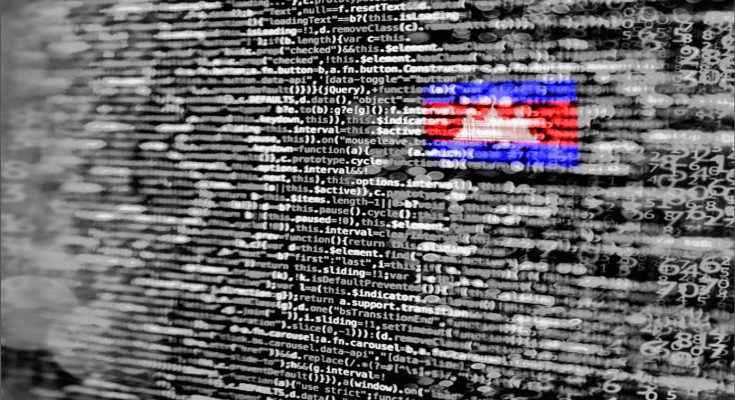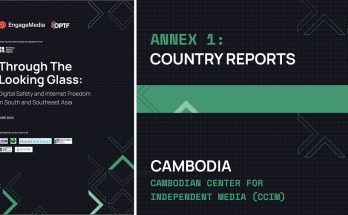The Asia Centre issues a report Internet Freedoms in Cambodia: A Gateway to Control, which is “dedicated to journalists, civil society organisations, political party leaders and online activists who continue the fight for internet freedoms and freedom of expression in Cambodia despite the obstacles they face” and CCIM has contributed some inputs together with other organizations in Cambodia. Below is the executive summary of the report.
“Internet freedoms in Cambodia have experienced a drastic regression. Tactics such as harassment of dissidents, censorship and media blackouts have become customary. Online platforms are increasingly used by people to exercise their right to freedom of expression, engage in critical discussions of the Royal Government of Cambodia (RGC) and its policies, and voice political opposition.
The government’s response has been to enact a slew of vaguely-worded laws and propose draft legislation to silence these online users and curb the advent of cyberspace as an important site to mobilise and launch political opposition to its continued rule.
This report reviews legislation utilised by the Cambodian government to tackle online dissent such as the Constitution, Penal Code, Law on Telecommunications, Inter-Ministerial Prakas No.170, the Sub-Decree No. 23 on the National Internet Gateway, and draft Cybercrime Law. Many of the provisions within these laws are in violation of international human rights standards and treaties ratified by Cambodia and heavily impact internet freedoms.
These legislative tools have been used to justify censorship via strict controls, increased surveillance of personal communications and the arrests and persecution of critics, leading to increased self-censorship amongst activists. The government also tries to shape the online narrative by imposing controls over independent online media and engaging in social media manipulation.
While freedom of expression is enshrined in Cambodia’s Constitution and supported by its ratification of the International Covenant on Civil and Political Rights (ICCPR), international human rights mechanisms have continually called out the RGC on its restrictions to free speech. These violations of freedoms have been captured in submissions to the Universal Periodic Review (UPR), as well as by the Special Rapporteur (SR) on the situation of human rights in Cambodia.
Recommendations on protecting internet freedoms in Cambodia provided in this report include: repeal or amend Article 49 of the Constitution and Articles 305, 425, 437, 453, 494 and 495 of the Penal Code that can be used to curtail the exercise of freedom of expression; Repeal Articles 6 and 97 of the Law on Telecommunications to safeguard the right to privacy; amend clauses 7 and 8 of the Inter-Ministerial Prakas to ensure their alignment with international standards; repeal Sub-Decree No. 23 on the NIG; and revise and align the draft Cybercrime Law with the international standards.
Overall, Cambodia’s slew of legal measures has created a highly surveilled digital landscape that is causing anxiety among those who want to express dissent. Faced with threats and social media manipulation, critics and human rights defenders have retreated into self-censorship and withdrawal from political engagement to ensure their survival.”


